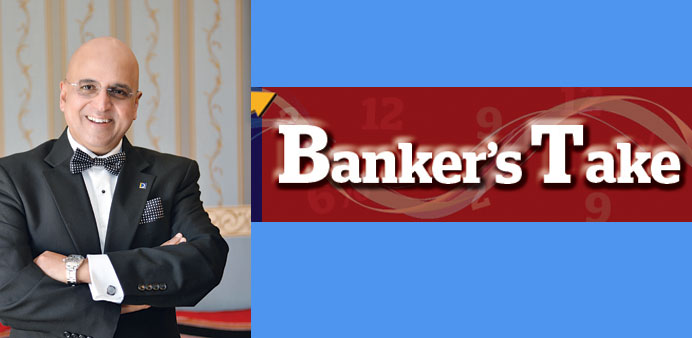The World Bank-IMF Annual Meeting was held at Washington DC, USA, during the weekend and I witnessed active participation areas relating to global economic outlook, banking and finance, sustainable development, youth, infrastructure and technology.
Global growth is projected to slow to 3.1% in 2016 before recovering to 3.4% in 2017. The 2016 forecast reflects weaker-than-expected US activity in the first half of the year as well as materialisation of an important downside risk with the Brexit vote. The downward revision to US growth mostly reflected weaker-than-expected growth in the second quarter of 2016.
In the United Kingdom, a strong start to the second quarter lifted GDP growth to 2.4% at a seasonally adjusted annualised rate from 1.8% in the first quarter of 2016.
Growth in emerging market and developing economies is expected to strengthen slightly in 2016 to 4.2% after five consecutive years of decline, accounting for over three-quarters of projected world growth this year.
In emerging Asia, growth in China in the first half of the year stabilised close to the middle of the authorities’ target range of 6½ –7% for 2016 on policy support and strong credit growth.
India’s economy continued to recover strongly, benefiting from a large improvement in the terms of trade, effective policy actions, and stronger external buffers, which have helped boost sentiment. Brazil’s economy remains in recession, but activity appears to be close to bottoming out.
Russia’s economy shows signs of stabilisation as it is adjusting to the dual shock from oil prices and sanctions, and financial conditions eased after bank capital buffers were replenished with public funds.
The recovery is projected to pick up in 2017 as the outlook improves for emerging market and developing economies and the US economy regains some momentum.
International monetary system reforms are complex and challenging, requiring significant multilateral collaboration. The inclusion of the Chinese yuan in the Special Drawing Rights (SDR) basket reflects the gravity shifts towards emerging markets in the global economy.
The ongoing tech revolution has far-reaching implications for social and political developments, productivity, and global economic trends. Slow global growth and increasing inequality, civil conflict and refugee flows, and the rise of political figures espousing nationalist and protectionist positions pose difficult challenges to global interconnectedness.
Fintech innovation and successes from emerging countries and the private sector show tangible progress towards Universal Financial Access 2020. But de-risking, where global financial institutions are restricting relationships with remittance companies and certain local banks because of perceived anti-money laundering risks, is undermining these efforts.
Growth rates in most other countries of the Gulf Cooperation Council are projected to be held back by ongoing fiscal adjustment. According to IMF recent forecasts, Saudi Arabia is expected to grow by 1.2% in 2016 in the light of fiscal consolidation and 2% in 2017 and have a current account deficit of 10.2% in 2016 and 6.1% in 2017 respectively.
The UAE is expected to grow by 2.27% in 2016 and 2.5% in 2017 and have a current account surplus of 1.1% in 2016 and 3.1% in 2017 respectively.
Qatar is expected to grow by 2.63% in 2016 and 3.36% in 2017 and have a current account deficit of 1.8% in 2016 and a current account surplus of 0.04% in 2017.
Oman is expected to grow by 1.79% in 2016 and 2.61% in 2017 and have a current account deficit of 21.2% in 2016 and 17.6% in 2017 respectively.
Bahrain is expected to grow by 2.1% in 2016 and 1.76% in 2017 and have a current account deficit of 4.7% in 2016 and 3.78% in 2017 respectively.
Kuwait is expected to grow by 2.5% in 2016 and 2.62% in 2017 and have a current account surplus of 3.56% in 2016 and 8.3% in 2017 respectively.
The Uncertainty in timing of rate hike by the Fed and the low oil prices will continue to impact GCC. The growth and sustainability in GCC will depend on alignment of fiscal and monetary policy and action.
*Dr R Seetharaman is Group CEO of Doha Bank.
Business / Business
GCC growth & sustainability depends on fiscal, monetary policy alignment & action

Dr R Seetharaman is Group CEO of Doha Bank. The views expressed are his own.
